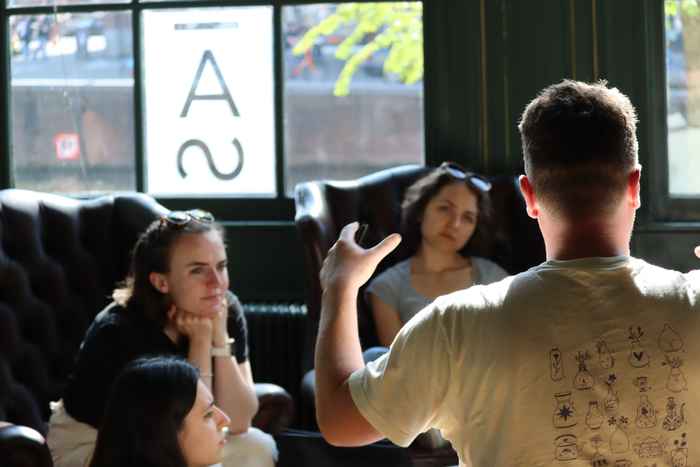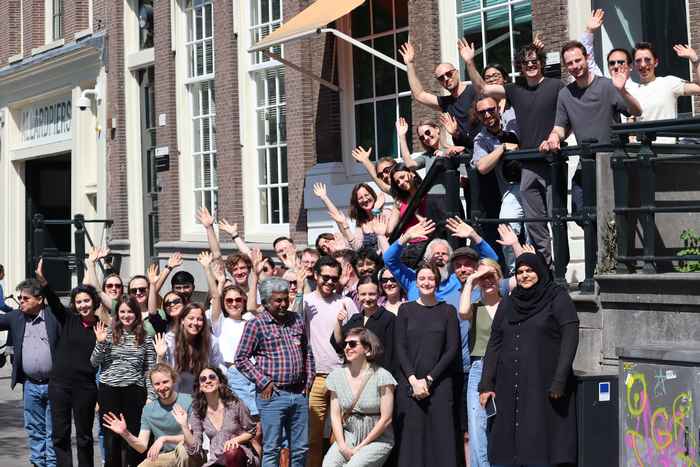IAS hosts Amsterdam Complexity School on Climate Change for the second time
7 May 2025
Shared commitment
Participants represented a diverse mix of disciplines, institutions, and sectors. The cohort included PhD researchers, postdocs, climate activists, policymakers, and business professionals. While the around 40 participants came from a wide range of disciplines, including economists, lawyers, social scientists, metallurgists, they shared a commitment to climate action and an interest in complexity-science approaches.

Fostering dialogue
ACSCC aligns with IAS’s commitment to fostering interdisciplinary collaboration and societal impact. Building on the success of other complexity-focused events hosted at the institute, ACSCC aims to create a space for meaningful dialogue centred around climate change between academics and practitioners from various backgrounds. The dialogue was shaped by a series of powerful keynotes, panels, and performances. Tim Lenton and Vítor Vasconcelos introduced systems thinking and tipping points as levers for transformation, while Joyeeta Gupta underscored the need to keep climate justice at the heart of all action. Doyne Farmer offered a hopeful vision of the economic case for rapid decarbonization, and Benjamin Franta highlighted the growing impact of climate litigation. Heleen Ekker shared insights from two decades of climate reporting, and a panel with Pippi van Ommen and Erika van der Linden explored the dynamic between grassroots movements and institutional change. Finally, a participatory performance by Laura Cull Ó Maoilearca and Agat Sharma invited participants to reimagine collective agency through art. Recorded talks are available at ACSCC’s YouTube channel.

Building solutions
The week was centered around climate-related projects that participants could pitch on the first day of the workshop. From there interdisciplinary teams formed around common interests and goals. Over the course of the week, these groups worked together to shape their ideas into concrete proposals or prototypes. The projects featured investigations into climate-conflict links, regulatory barriers to sustainable investment, strategies for heat-pump adoption, studies on the ultra-rich, misinformation around “15-minute cities,” and a performance on multi-level governance.